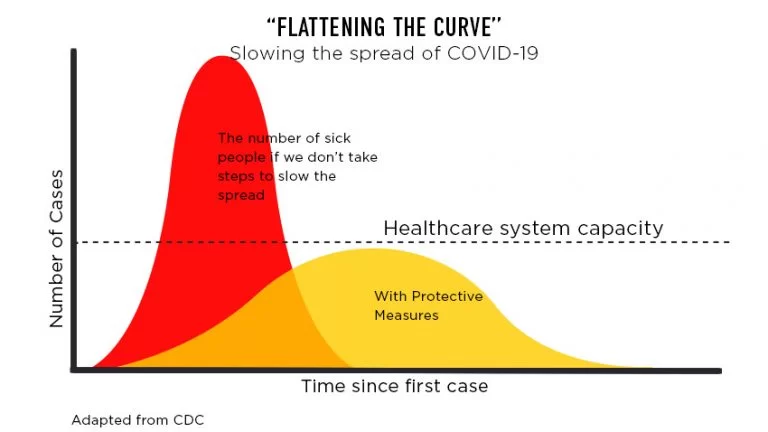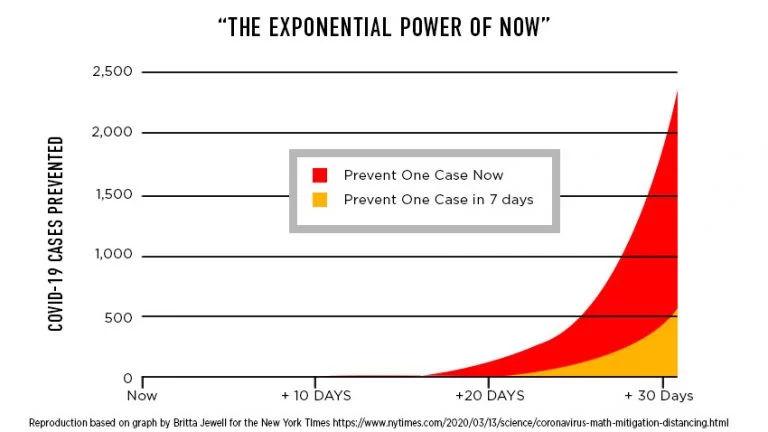The way we work has changed. The question is: for how long? Certainly for the next month. But the next several? The next year? While no one can say for certain, it is important we make appropriate changes to our businesses to survive in the face of this uncertainty.
In our previous post we focused on some of the ways you can protect your business from COVID-19. In this post we will share with you what we have learned so far, and how we are adapting our business to better serve our customers. We certainly don’t have all the answers, but the more we continue to share our experiences with each other, the faster we can adapt our businesses to this new environment.
Lesson #1: Company Culture Can Change In A Day
Employees are scared for many reasons – the significant risk of this virus to the elderly and immunocompromised, stories of ventilator shortages in Italy, and future economic uncertainty – to name a few. How you respond to each question, each concern, will determine how your employees feel about their safety. Consequently, a failure to address their concerns quickly and compassionately will result in a very sudden, and very negative, cultural shift in your business. A common enemy can bring people together, but distrust and fear can push them apart. Very rarely does a business have the opportunity to shift its culture so quickly, and with such consequence.
It is our belief that we – ServiceMaster NCR – have a real and immediate responsibility to prevent the spread of COVID-19. Our employees play an important and central role to winning this war through cleaning and disinfection, and they need to know that! That is why we have shifted the mission of our company to flattening the curve.

Every business has a role to play in this – whether it’s keeping people fed, or giving them a welcome distraction in a time of distress. You need to identify what your company’s role is, and let your employees know why their contribution is so important.
Lesson #2: When You Are Transparent With Your Customers, They Listen
One of the changes we had to implement early on in our business was clear, but we didn’t know how it would be received. Our employees interact with dozens of customers each day. We had no choice but to ask our customers,
“Do you have any signs of illness or knowingly been exposed to COVID-19?”
We did not know how this would be received. Would people be mad? Would they perceive it as an “overreaction?” The response was overwhelming. People genuinely appreciated that we were taking every precaution to protect our employees. We should have known. Transparency creates trust, and trust is the foundation of a business relationship.
Lesson #3: Business Moves Faster Than Government
Ok, maybe we didn’t need coronavirus to teach us this one, but many of the CDC recommendations lagged behind the observational data that was emerging from China, Italy, and other early outbreak areas.
To be fair, they don’t have a choice.
Information has to be properly vetted and analyzed before an agency can inform over 300 million people that, say, SARS-CoV-2 can remain airborne for at least several hours. Businesses however, can take this emerging information and immediately inject it into their business model to set a safer standard for their customers and employees.
When rumors emerged that the virus may be airborne, we immediately required all of our service employees to wear full face (HEPA) respirators, PPE, and to follow proper decontamination procedures for our equipment on any job site where COVID-19 is suspected. We also began researching options to deal with the airborne component while disinfection services were underway.
Safety recommendations are the minimum, not maximum, requirement. If you are responsible for setting safety standards in your business, you do not have to wait for new recommendations to set a safer standard. Your employees and your customers will thank you for it.
Lesson #4: Social Pressure Changes Business Standards Exponentially
Over the last few days you have probably seen many graphs like this one:

Many news sources talk about the exponential growth rate of the coronavirus outbreak, however we are beginning to see that this same pattern holds to changes in business standards. Within days, a handful of news stories, blog posts, and a “let’s wait and see” attitude has rapidly deteriorated into hand sanitizer shortages, self-quarantine, and a national emergency. In the case of business standards it works something like this:
A news story reports that someone contracted COVID-19 at a conference. The story is highly publicized. Businesses in the same industry take notice, “should we cancel our conference too?” Very rapidly a new standard is set and the message is clear:
If you don’t cancel and someone is exposed, you will be the next news story.
Within days, hundreds of gatherings throughout the country either postponed or canceled. The bigger the company, the greater the exposure, and the greater the obligation. Though genuine altruism is certainly a factor, it is social pressure that is responsible for the exponential rate of change.
What does this mean for your business?
Be first, not last. Those businesses that are last to change in a rapidly evolving environment face greater social consequences than those that are first.
Summary
Protecting company culture, transparency with your customers, raising the bar on safety, and quickly adapting to new business standards – these are important lessons for businesses in a time of uncertainty. We would love to hear your thoughts on social media or our website. We will continue to share as we learn more. We hope you will too.

